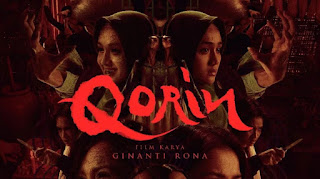Gemini (1999) - Shinya Tsukamoto Horror Review
As someone whose first introduction to the legendary Shinya Tsukamoto was through his off-beat, disturbed acting roles in cult classics such as Ichi the Killer and Marebito, I was apprehensive as to how he would fare behind the camera, as well as in front.
However, having recently seen his iconic oeuvre “Tetsuo Iron Man 1” for the first time, I was expecting a similar, shocking and experimental outing when watching the Third Window Films' edition of Tsukamoto's Gemini. I stood corrected.
Tsukamoto's 1999 movie Gemini, set during Japan's Meiji period, is an exquisitely designed and elaborately accurate period piece inspired by author Edogawa Ranpo's short story “The Twins.
Shot with low lighting, off-kilter sepia colouring - gone is the harsh, psychedelic, epilepsy inducing cinematography seen in Tetsuo. If I hadn't known that this was ultimately a horror movie, I would have initially assumed that Gemini was in fact an excruciatingly detailed historical period romance-drama.
Gemini is centred around the home of well-to-do Tokyo village doctor Daitokuji Yukio, his elderly traditional parents, their maids and his seemingly nice (if a bit strange) amnesiac wife Rin. Yukio is renowned as being a decorated field doctor during a recent war and many wealthy residents (and bored housewives) are just dying to patronise his practise in order to get a glimpse of clean, handsome, famous Daitokuji Sensei.
Do all residents of this Tokyo suburb get to witness first hand the life saving practises of Dr. Dreamy!? Heavens no! Dr. Dreamy would never dream of treating any of the many, plague ridden peasants from the local slums. In fact, such is the derision of the slums by the upper class, it's a common desire of his to “raze” that particular locale to the ground. A pox on them all! Which is funny, because there is in fact an actual pox on them...!
To be honest, who is dreamy Yukio to judge who to treat or not? Didn't he himself in fact play God during the war and euthanise wounded soldiers with no hope, much to his austere father's disdain? What would his well wishers and admirers think of him then!?
In fact, what does Yukio think of himself for his actions during the war?
Is guilt slowly gnawing at his seemingly innocent exterior? Hasn't he been seeing a shadowy figure akin to his own likeness lurking in the shadows of his magnificent Japanese mansion? He feels out of sorts. In his mind, a strange atmosphere has descended upon his home like a black mould and is slowly eating through his outwardly perfect life.
Funny how this strange atmosphere coincides with his frail and ailing mother's growing unease with memory-less Rin and the sudden apparition of a foul and un-removable stench from within the walls of their home.
With the untimely and unusual deaths of both his parents in quick succession, the viewer begins to realise that perhaps that Gemini is not just a case study tale of the gradual mental disintegration of Yukio. Is there something more corporeal at play here? Was the interpretive dance performing fox-fur clad peasant that Yukio's mother saw the night before her death more than just a visual metaphor for death?
From here on out Gemini is fit to bursting with absolutely breath taking plot twists, scenes of highly choreographed mayhem, beautifully erotic sequences, in-your-face class divide parables, endless questions about what the hell is actually real or fantasy, heart-breaking realisations and an ending that is satisfying, with loose-ends tied up but without losing any of the surreal, possibly supernatural mystery enfolding the enigma of this entire movie.
If you're a big fan of The Simpsons, you will be reminded heavily of a particular Tree House of Horror special from the 90's revolving around Bart and his shunned, evil twin brother Hugo. Separated at birth but eventually meeting by chance to have that ultimate fraternal show down.
A particular highlight for me in a movie full of highlights was the top-notch bestial, carrion make up effects and prostheses. Even before the true horror unfolds and the film presents itself outwardly as a perfectly normal outing, the unnatural (but natural) make up with its waxy sheen on the characters skin coupled with the stiff, almost puppet-like, way they manipulate their movements lends itself to the aura that all is not as it seems.
This is a strikingly dynamic movie, rife with visual metaphors, chilling musical motifs and visceral, brutal imagery that indicates that this, while more polished than Tetsuo, is unapologetically a Shinya Tsukamoto masterpiece.
As of November 2nd 2020, Gemini is available from Third Window films in both Blu-Ray and Digital formats. For those who, like myself, truly loved this movie and want to dive deeper, the Gemini extra features include: (but are not limited to)
Audio commentary by Tom Mes, author of Iron Man: The Cinema of Shinya Tsukamoto, Making of Gemini” featurette directed by legendary Takashi Miike, Venice Film Festival featurette and assorted Behind the Scenes footage and make up demos.
Let's keep the spooky chat going:








Comments
Post a Comment